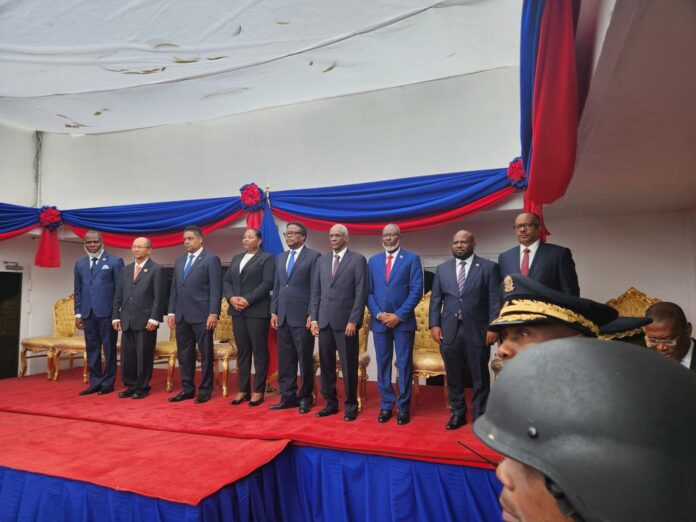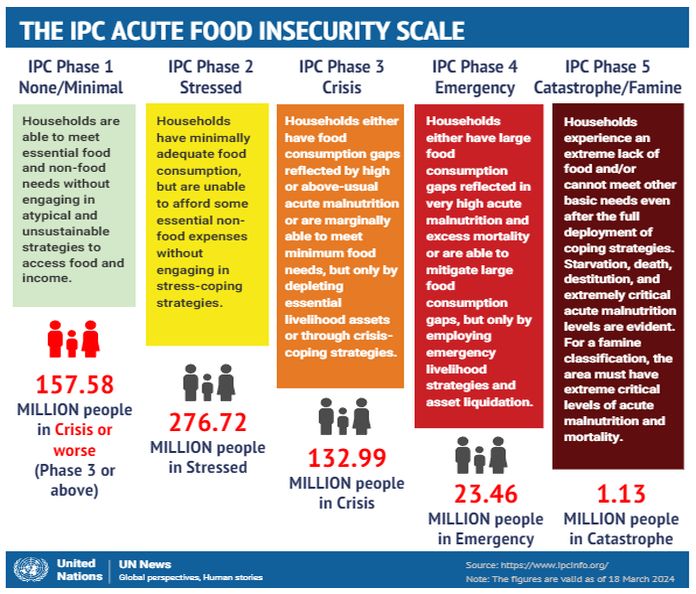UN welcomes Haiti’s transitional presidential council

USA / HAITI – Hopes rose on Thursday of political progress amid the multiple crises engulfing gang-ravaged Haiti, with the formal resignation of prime minister Ariel Henry and the official installation of the Transitional Presidential Council.
Henry had agreed to step down in March after heavily armed criminal gangs seized the country’s airport and blocked his return. He will be replaced by former finance minister Michel Patrick Boisvert, who takes over as interim prime minister.
Spokesperson for the Secretary-General Stéphane Dujarric said the UN welcomed the newly-formed Council.
Call for swift international police deployment
“We call on the new authorities and all stakeholders to expedite the full implementation of the transitional governance arrangements,” he said.
The secretary-general reiterates his call for the swift deployment of the Multinational Security Support mission to Haiti, authorized by the Security Council in October last year, to support the Haitian National Police and return law and order to the streets after months of turmoil which has left millions in need, Dujarric added.
“The secretary-general appeals to all Member States to ensure the Multinational Security Support mission receives the financial and logistical support it needs to succeed.”

The ongoing crisis in Haiti is having a “massive” and “devastating” impact, with over half the population acutely food insecure and more than one million staring at emergency levels of hunger, a senior UN World Food Programme (WFP) official said on Thursday.
Haitians have been facing a multitude of challenges over the years, encompassing political, security, social and economic issues. The protracted crisis has been further exacerbated by months of brutal gang violence that claimed more than 2,500 lives in the first quarter of 2024 alone.
Having recently returned from the country, Carl Skau, WFP deputy executive director, told journalists at UN headquarters in New York that the crisis was the worst since the 2010 Haiti earthquake.
“Half the population – some five million people are acutely food insecure,” he said, adding that over a million are in the IPC Phase 4 or Emergency level of hunger. He stressed that a political and security response to the crisis needs to be accompanied by a robust humanitarian response.
“What I saw on the ground is that this can be done, also at the centre of the crisis, in Port-au-Prince. But that we need also to do more on resilience and development elsewhere to really try to break this vicious cycle,” he added.

‘Crisis felt everywhere’
About 90,200 people are displaced in the Port-au-Prince Metropolitan Area, with that number continuing to rise, according to the UN humanitarian affairs office (OCHA).
At the same time, trade is disrupted in other parts of the country, inflation is rising sharply, and supplies are beginning to run out.
“The crisis is felt everywhere,” Skau said, urging a differentiated response. “What we need is an emergency response in Port-au-Prince, but we can continue to do other kinds of support, including development support in the rest of the country,” he said.
The WFP official noted that aid supplies are starting to run out on the ground.
“And so, we would need to replenish also with shipments. So, we are hoping, having seen that the international airport open at least for one flight, that that can be sustained and expanded, and also that there would be an opening of the port in Port-au-Prince.”
Haiti’s new leadership set to take office, as gangs renew threats
Source: caribbeannewsglobal.com


